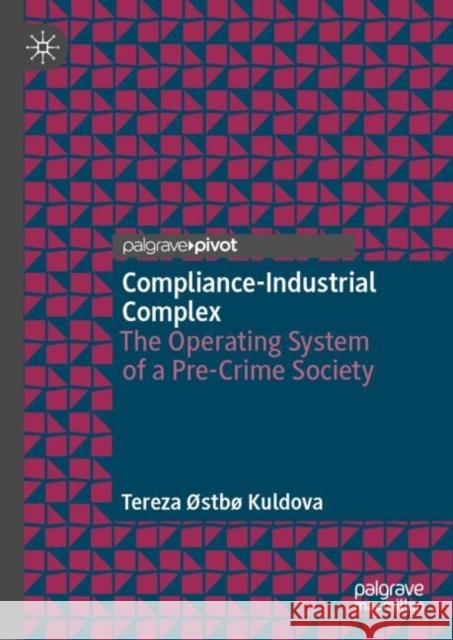Compliance-Industrial Complex: The Operating System of a Pre-Crime Society » książka
Compliance-Industrial Complex: The Operating System of a Pre-Crime Society
ISBN-13: 9783031192234 / Angielski / Twarda / 2022 / 166 str.
This is the first book to examine the growth and phenomenon of a securitized and criminalized compliance society which relies increasingly on intelligence-led and predictive technologies to control future risks, crimes, and security threats. It articulates the emergence of a ‘compliance-industrial complex’ that synthesizes regulatory capitalism and surveillance capitalism to impose new regimes of power and control, as well as new forms of subjectivity subservient to the ‘operating system’ of a pre-crime society. Looking at compliance beyond frameworks of business management, corporate governance, law, and accounting, it looks as it as a social phenomenon, instrumental in the pluralization and privatization of policing, where the private intelligence, private security, and big tech companies are being concentrated at the very core of compliance, and hence, governance of the social. The critical book draws on transversal, rather than interdisciplinary, approaches and integrates disparate perspectives, inspired by works in critical criminology, critical algorithm studies, critical management studies, as well as social anthropology and philosophy.
This is the first book to examine the growth and phenomenon of a securitized and criminalized compliance society which relies increasingly on intelligence-led and predictive technologies to control future risks, crimes, and security threats. It articulates the emergence of a ‘compliance-industrial complex’ that synthesizes regulatory capitalism and surveillance capitalism to impose new regimes of power and control, as well as new forms of subjectivity subservient to the ‘operating system’ of a pre-crime society. Looking at compliance beyond frameworks of business management, corporate governance, law, and accounting, it looks as it as a social phenomenon, instrumental in the pluralization and privatization of policing, where the private intelligence, private security, and big tech companies are being concentrated at the very core of compliance, and hence, governance of the social. The critical book draws on transversal, rather than interdisciplinary, approaches and integrates disparate perspectives, inspired by works in critical criminology, critical algorithm studies, critical management studies, as well as social anthropology and philosophy.











